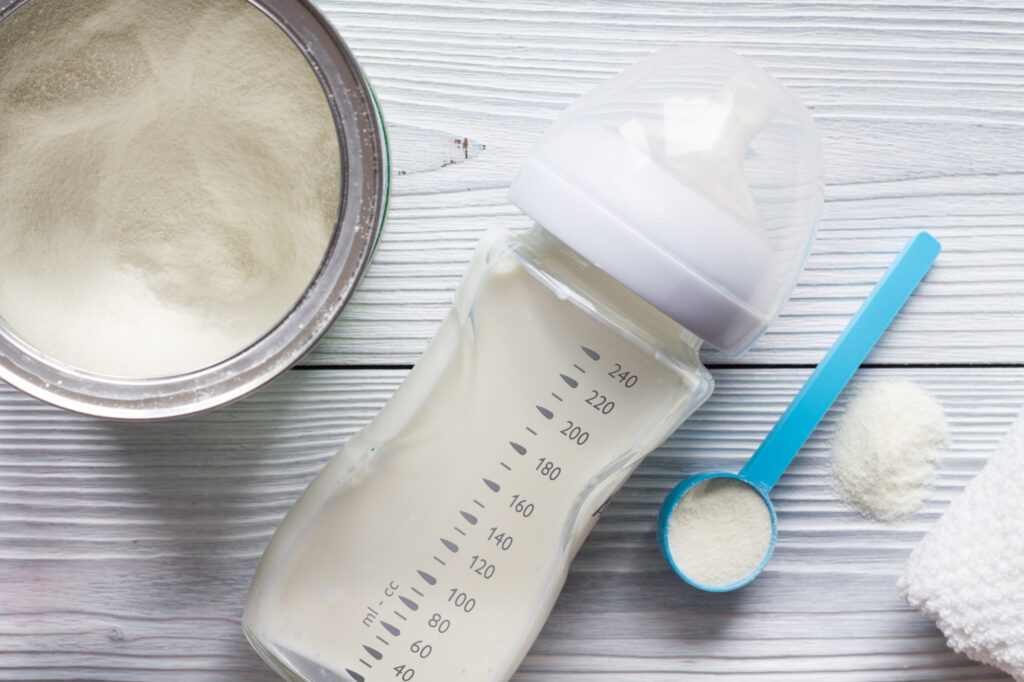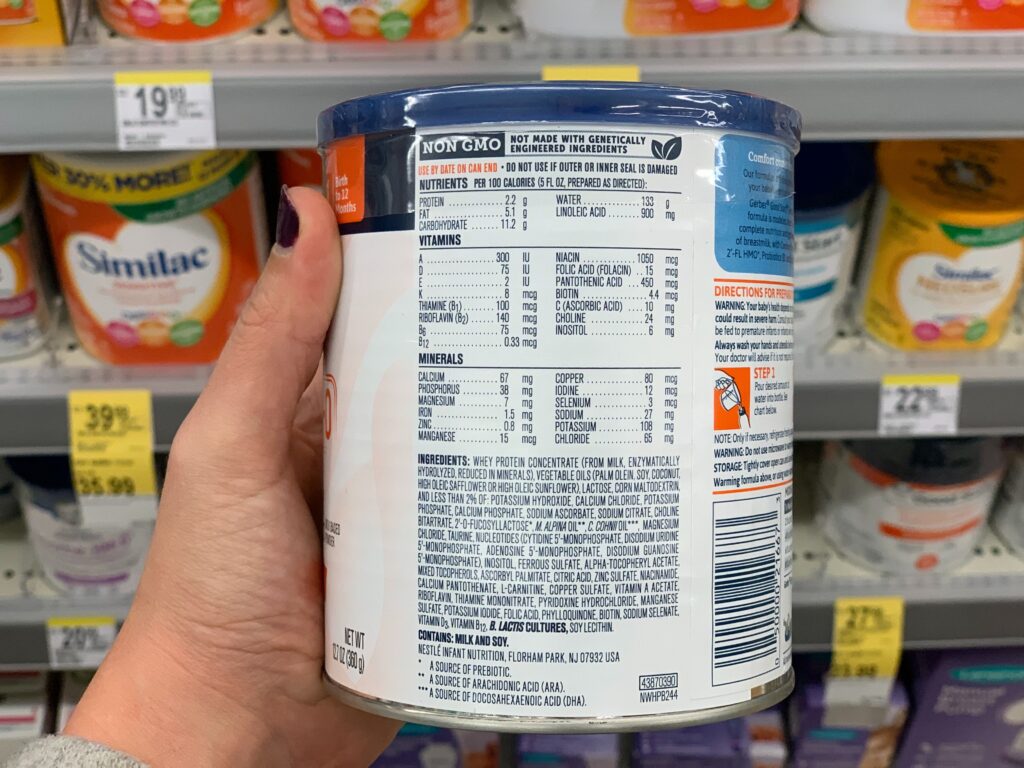New mommies are often advised to nurse their newborns. But for a very long time, kids are non-nursed as it is not so different from the other. However, according to a study, there is no variation between kids who were nursed and non-nursed during their infancy. However, some positive developments are noticed in those who had breast milk compared to those who had commercial milk.
The investigation indicates that kids who were were nursed showed lesser issues with hyperactivity, and in the latter stages of their lives, they even scored high in problem-solving and vocabulary.
Everything to Know About Breast Feeding:

Since breast milk is produced by the human body, it is the perfect kind of milk for feeding a baby. Its composition changes according to the needs of a toddler, producing needed antibodies to protect babies against viral and bacterial infections. That’s why it is suggested to provide a tot with breast milk for as long as you can.
Such infections include the following:
- Bacterial Meningitis
- Ear Conditions
- Stomach Disorder & Inflammation
- Urinary Tract Infections
- Necrotizing Enterocollitis
- Respiratory Tract Diseases
Other health benefits of breastfeeding:
- Lowers the chance of SIDS (Sudden Infant Death Syndrome)
- Nourishes brain development
- Lessens the risk of diarrhea
Since breastfeeding has an analgesic effect, it comforts the infant when they experience pain and lessens the chances of developing health problems later in life, including obesity, celiac disease, type I & II diabetes, heart issues, high cholesterol, and high blood pressure, Crohn’s disease, ulcerative colitis, acute lymphoblastic leukemia, and neuroblastoma cancer.
In moms also, breastfeeding provides several perks including, decreasing the chances of metabolic syndrome, ovarian cancer, type II diabetes, postpartum depression, osteoporosis, hypertension, cardiovascular illness, and breast cancer. If you’re wondering whether to breastfeed or formula feed, remember that breast milk is always available for free, and requires no preparation.
Here is a List of Nutrients Present in Breast Milk:

- Carbohydrates,
- Carboxylic Acid,
- Proteins & Fats,
- Non-protein Nitrogens,
- Antimicrobial Factors
- Amino Acids & Nucleotides,
- HMO (Human Milk Oligosaccharides),
- Monosaturated Fatty Acids,
- Sterols, Enzymes, Hormones,
- Vitamin A, B6, B8, B12, C, D, E, & K.
Breast milk has numerous antibodies that help build a sturdy immune system in the tot. It prevents diseases and conditions, is readily digestible, and declines the chance of bloating and gas.
Everything to Know About Formula Feeding:

Commercial formulas are usually prepared in labs or from cow milk. Since numerous brands sell different foods, it gets confusing to determine which one to buy. Making mistakes while preparing formulas and contaminating them exposes a baby to health risks.
If you believe that formulas are similar to breast milk, let us expose you to the truth that they do not contain the same antibodies as breast milk. They contain ingredients challenging for an infant to absorb, such as elevated vitamins and minerals. Although foods rich in nutrients are suitable for health, they are tough to digest.
Sometimes, formula feeding may also lead to the following health issues in an infant:
- Gas
- Vomiting
- Wheezing
- Constipation
- Bloody Stool
- Loose Stools
Here is a List of Nutrients Present in Formula Milk:

If you step into the market, you can find a range of formulas such as soy and hypoallergenic to name a few. But some general ingredients are found in all commercial foods including,
- Carbohydrates & Proteins,
- Fats, Minerals, Enzymes,
- Amino Acids, Nucleotides,
- Soy Lecithin, and
- Vitamins such as D3, B12, Riboflavin, and Folic Acid.
Formula milk is a more nutritious choice than breast milk as it is packed with all the required nutrients. But it also causes health problems that are not present in a nursing infant. It is because the ingredients in commercial milk are tough to digest and lead to gas and other issues. That is exactly why you need to carefully choose the highest quality, certified organic and well-known brand formula, such as Kendamil Stage 1.
Noticeable Differences in the Growing Patterns of a Newborn:
-
Early Stages

You must know that infants tend to go back to their birth weight in the first few days of their life. Several studies have proved that infants who had mother’s milk tend to lose more weight than those who had commercial milk in the initial weeks of their birth.
We have already discussed the health benefits of nursing, but we don’t know that right after giving birth, the reserve of nutrition is down. On the other hand, commercial milk contains nutrients.
That’s why mothers prefer providing their infants with commercial stuff, so they don’t lose much weight.
-
Three Months
According to several health experts, there is no such noticeable distinction between the health of children who had processed milk during the early stages of their lives and those who had their mother’s milk. It happens because, when a few months have passed, mothers begin producing nutrient-rich milk that helps them gain weight consistently.
-
Six to Twelve Months

If you are feeding a baby milk until now, it is time to introduce them to solid meals once they reach the six-month milestone. Adding solid meals to a baby’s diet provides them the required amount of proteins and power to grow consistently.
To Sum Up
The fat found in moms is inconsistent. Although it is often copied in processed milk, not every fat can be replicated. The fat found in mother milk serves additional roles. While some aid in gaining weight, others help in the evolution and development of the body. It is something that no company can copy in artificial foods.
That’s why if mothers are facing problems in breastfeeding, they must consult a doctor to learn how to transition from breastmilk to formula. It offers whole nutrition to an infant during their critical growth years, and mothers also connect while feeding their newborns.
There’s no arguing that breast milk is the healthiest and the best origin of nourishment for a baby. It is free of cost, always available at the right temperature, and doesn’t need preparation. However, we understand that there could be situations where you may have to feed commercial food to your child. And that is okay as long as you keep its nutritional value in mind.

